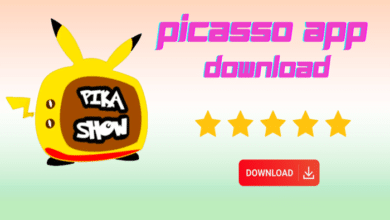The Rise of “Bocil Sotwe”: Understanding the Phenomenon and Its Impact

In recent years, certain slang terms have taken over the internet and social media platforms, influencing everything from memes to viral trends. One such term that has recently gained attention is “bocil sotwe.” This unique phrase, which has its roots in the Indonesian digital culture, has become a staple among younger generations and has significantly impacted internet vernacular. So, what exactly does “bocil sotwe” mean, and how did it become such a phenomenon? In this article, we’ll explore its meaning, history, and the cultural context behind it.
The Meaning of “Bocil Sotwe”
To understand “bocil sotwe,” it’s essential to break down the phrase. “Bocil” is an Indonesian slang term that refers to a child or a young person, typically used for someone who is perceived as being immature or inexperienced. On the other hand, “sotwe” is a playful and stylized abbreviation of “sosial media Twitter,” a combination of “social media” and “Twitter.” Together, “bocil sotwe” refers to a young person who is particularly active on social media platforms like Twitter, often engaging in memes, jokes, and internet trends that may seem nonsensical or overly dramatic to those outside the online world.In a sense, a “bocil sotwe” is someone who is immersed in the digital culture and heavily influenced by social media trends. The phrase is often used to describe someone who has adopted a specific online persona or engages in “cringe” content, which is a key part of the term’s appeal in internet communities.
The Origins of “Bocil Sotwe”
The term “bocil sotwe” first emerged from the vibrant world of Indonesian internet culture. While the exact time and place of its origin are difficult to pinpoint, the phrase has become a prominent feature of online conversations, especially among the younger generation. Its rise coincided with the widespread use of Twitter and other social media platforms in Indonesia, where youth culture was beginning to be shaped more by digital interactions than traditional forms of media.The popularity of “bocil sotwe” can be attributed to several factors. First, it aligns with the global trend of internet users adopting quirky and humorous slang to define their online presence. Second, it appeals to the younger generation’s desire for identity and belonging within digital communities. Much like other viral phrases, “bocil sotwe” quickly spread through Twitter, TikTok, and other social media networks, becoming an integral part of online discussions.
The Role of Memes in the “Bocil Sotwe” Culture
Memes play a crucial role in the world of “bocil sotwe.” In fact, the entire phenomenon could be considered a meme itself, encapsulating the essence of youthful internet humor. Memes, which are often characterized by their absurdity and humor, allow “bocil sotwe” to thrive by providing a platform for creating and sharing ridiculous or exaggerated content. These memes often depict “bocil sotwe” as overly enthusiastic or passionately involved in trivial online matters, much to the amusement of their peers.For example, a “bocil sotwe” might post exaggerated reactions to the latest trending topic on Twitter, often making dramatic statements or engaging in playful arguments. The meme culture surrounding this term often involves the use of absurd humor and irony, poking fun at how young people interact with social media in an exaggerated way. In many cases, the more nonsensical or hyperbolic the meme, the more likely it is to be associated with the “bocil sotwe” identity.
How “Bocil Sotwe” Is Shaping Digital Culture
The rise of “bocil sotwe” reflects a larger shift in how digital culture is developing, especially among the younger generation. In many ways, it represents a departure from more serious or meaningful discussions on social media, embracing instead a sense of absurdity, humor, and entertainment. As more young people become active on platforms like Twitter, TikTok, and Instagram, they increasingly participate in the creation and spread of content that can be described as “bocil sotwe.”This cultural shift is not limited to Indonesia. Across the globe, there is a growing trend of younger users embracing playful online personas that are designed to entertain rather than inform. The “bocil sotwe” phenomenon is a direct reflection of this global trend, as young people use humor and satire to interact with the world around them, often in a way that feels detached from traditional forms of communication.
The Significance of “Bocil Sotwe” in Indonesian Youth Culture
In Indonesia, “bocil sotwe” holds significant cultural weight as it encapsulates the changing dynamics of youth culture in the digital age. Indonesian youth, particularly those active on social media, have embraced the concept as a form of self-expression and a way to fit in with their peers. For many, being identified as a “bocil sotwe” is a badge of honor, signifying their membership in a digital community that thrives on humor and internet memes.Additionally, “bocil sotwe” also represents the playful rebellion that many young people experience as they navigate their online identities. It serves as a counterpoint to more serious or traditional cultural norms, allowing youth to experiment with their social media presence without fear of judgment. This aspect of the term has made it particularly resonant with Indonesian youth, who are at the forefront of this digital revolution.
Sad poetry in Urdu beautifully captures the raw emotions of heartbreak, loneliness, and longing. Rich with deep metaphors and soulful expressions, it resonates with every heart that has ever experienced pain. In this blog, we explore timeless verses by legendary poets and introduce you to modern expressions of sorrow. Whether you’re seeking solace, reflection, or simply appreciate the artistry of Urdu literature, our curated collection of sad poetry will touch your soul. Dive into the world where every word speaks volumes, and every rhyme carries a hidden tear. Feel the beauty of sadness, portrayed like never before
The Criticism and Backlash Against “Bocil Sotwe”
Not everyone is a fan of the “bocil sotwe” phenomenon. Critics argue that the term represents a shallow or immature form of engagement with social media, and some suggest that it encourages the spread of trivial or misleading information. Others worry that the excessive focus on memes and humor could detract from more meaningful conversations about important social or political issues.While “bocil sotwe” may be seen as a fun and harmless way to engage with digital culture, it does raise questions about the future of online interactions. As social media continues to evolve, it’s possible that the next wave of internet culture may look very different, with new terms and trends emerging that either reinforce or challenge the “bocil sotwe” identity.
The Future of “Bocil Sotwe” and Internet Culture
As digital culture continues to evolve, so too will the identity of “bocil sotwe.” The rise of new social media platforms and the constant evolution of internet trends suggest that phrases like “bocil sotwe” will continue to shape online interactions for years to come. Whether or not the term itself will maintain its popularity is uncertain, but it is clear that it represents a broader shift in how young people engage with the digital world.In the future, we may see more terms like “bocil sotwe” emerge as part of an ever-growing lexicon of internet slang, each representing a different facet of digital culture. As long as social media platforms remain a central part of daily life, the influence of terms like “bocil sotwe” will continue to play an important role in shaping the way people connect, communicate, and express themselves online.
Conclusion: The Enduring Appeal of “Bocil Sotwe”
The term “bocil sotwe” has carved out a unique space in the digital landscape, especially within Indonesian youth culture. What started as a playful term used to describe an internet-savvy, meme-loving young person has evolved into a broader commentary on internet culture itself. The rise of “bocil sotwe” demonstrates the power of social media to shape language, identity, and community, and it offers a glimpse into the future of digital interactions. Whether you love it or hate it, “bocil sotwe” is here to stay, representing the spirit of humor, absurdity, and creativity that defines internet culture today.
FAQs
- What does “bocil sotwe” mean?
- “Bocil sotwe” is an Indonesian slang term referring to young people who are active on social media, particularly Twitter, and engage in memes and internet humor.
- How did “bocil sotwe” become popular?
- The term gained popularity through Indonesian internet culture, especially on Twitter, as young people embraced internet memes and absurd humor.
- Is “bocil sotwe” a positive or negative term?
- While it is often used humorously and with affection, some critics view it as representing immaturity or a lack of meaningful engagement with social media.
- Can “bocil sotwe” be used outside of Indonesia?
- While the term is deeply rooted in Indonesian culture, its usage has spread to other countries, particularly among youth familiar with internet slang and memes.
- Will “bocil sotwe” remain relevant in the future?
- The future of the term is uncertain, but it represents a broader shift in digital culture, and terms like it are likely to continue shaping online interactions.




